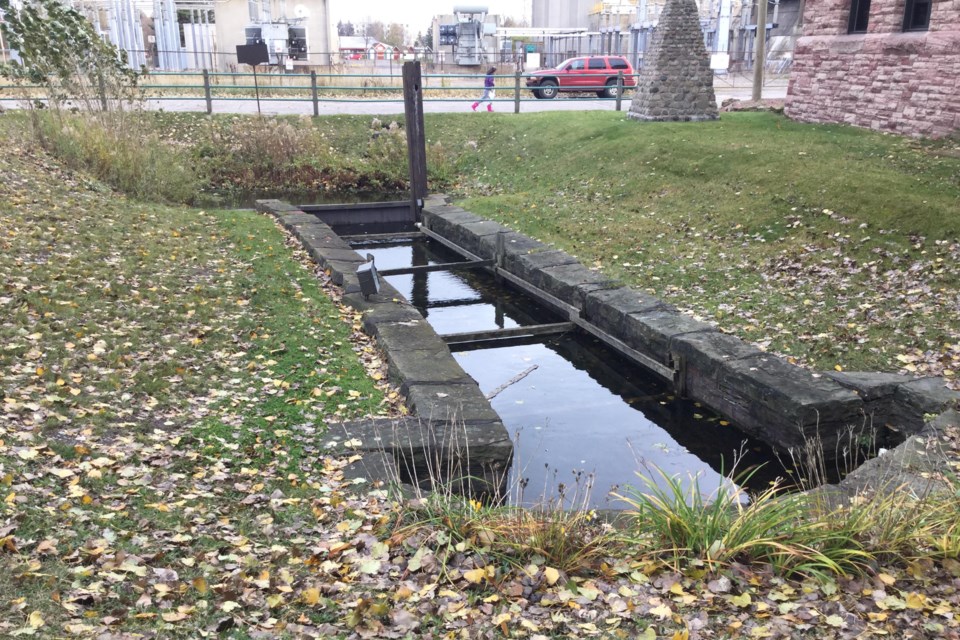Sault Ste. Marie's oldest physical link to its fur trading heritage is in "an extremely dilapidated state of repair" with its stone walls "on the verge of collapse," the city's municipal heritage committee warned yesterday.
A letter to the National Sites and Monuments Board of Canada, approved Wednesday by the local committee, pleads that the 220-year-old attraction beside the former St. Marys Paper offices at 75 Huron St. be upgraded to a national historic place.
The North West Company replica lock was constructed in 1896 by the Sault's pioneering industrialist, Francis H. Clergue.
Clergue built the less-than-accurate replica on the site of the original 1797 wooden lock, part of the first canal linking Lake Superior to Lake Huron.
In the letter approved yesterday, committee member and architect Chris Tossell discloses that a recent draining of the lock revealed that the original boards from 1797 are still intact underneath Clergue's reconstruction.
"Hemlock lasts forever," Dean Greenwood, the committee's vice chair, told SooToday.
The site was designated as a national historic event on May 21, 1921.
"Our request to you is that the canoe lock site be re-considered as a National Sites and Monuments Board 'place' rather than an 'event' ....a change of designation would very much help us in our search for funding for the lock restoration," Tossell wrote.
The 2,580-foot-long canal and its wooden lock were designed to allow birch-bark Montreal canoes (canots de maître) to bypass the St. Marys River rapids.
Each canoe was 11 metres long by 1.8 metres wide, carrying three tons of cargo and up to a dozen crew members.
The 1797 canal had a wooden path running alongside it, for the oxen which tracked boats through the locks.
What happened to the original lock isn't clear, but if it was still in use in 1814, it almost certainly would have been burned along with all other buildings in the fur trading post when Americans attacked that year.
Over the past two years, the municipal heritage committee has been looking, without great success, for grant money to renovate and re-landscape the lock.
The property is now owned by the Algoma Conservatory of Music, which supports the committee's request for redesignation.
Committee members met earlier this year with Mayor Christian Provenzano to discuss having the city assume a long-term easement on the property, a move that might help with fundraising efforts.
Needed improvements at the site would cost about $200,000.
Algoma Conservatory of Music has indicated it would support an easement.
